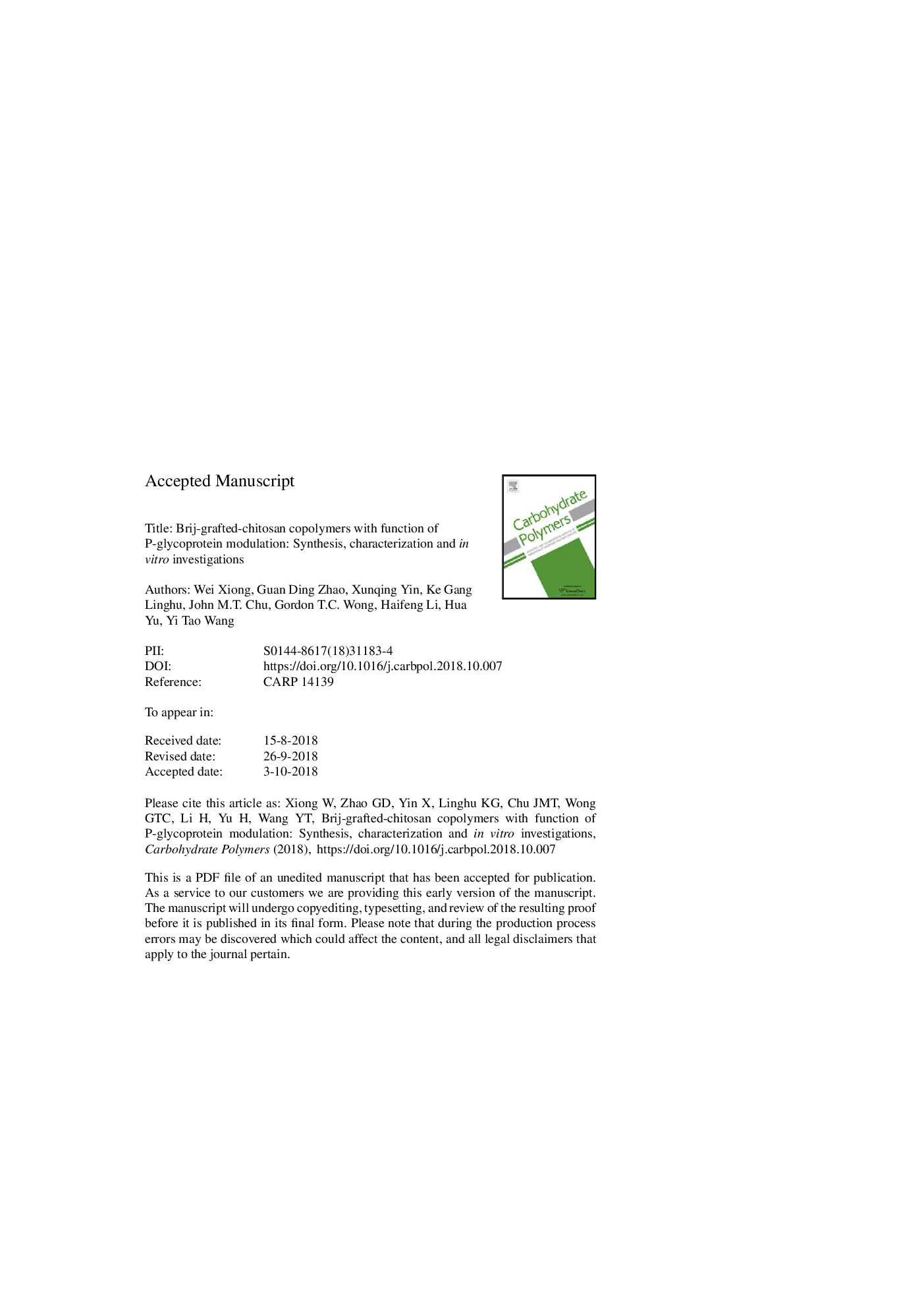| Article ID | Journal | Published Year | Pages | File Type |
|---|---|---|---|---|
| 11011552 | Carbohydrate Polymers | 2019 | 22 Pages |
Abstract
Chitosan (CS), a nature-derived polysaccharide, is a promising nano-carrier material with good biocompatibility and biodegradability. However, the biomedical applications of CS are hindered because of its poor aqueous solubility. To circumvent this drawback, a series of Brij-grafted-chitosan copolymers (BCs) with various grafting degree of Brij-S20 were first developed and reported. The results indicated that the water solubility of BCs (from 9.13 to 9.54âmg/mL) were much higher than that of CS (0.32âmg/mL), due to the broken intra- and/or inter-molecular hydrogen bonds and the decreased initial crystallinity in BCs. The amphiphilic structure of BCs presented lower critical micelle concentration (0.116-0.376âmg/mL) thus facilitating its self-aggregation into micelles for drug encapsulation. Moreover, BCs markedly enhanced the intracellular uptake of rhodamine-123 in MDCK-MDR1 cells. This inhibition on Pgp-mediated efflux was also confirmed by confocal microscopy. In conclusion, BCs could be further developed as polymeric nano-carriers for those drugs with Pgp-mediated efflux.
Related Topics
Physical Sciences and Engineering
Chemistry
Organic Chemistry
Authors
Wei Xiong, Guan Ding Zhao, Xunqing Yin, Ke Gang Linghu, John M.T. Chu, Gordon T.C. Wong, Haifeng Li, Hua Yu, Yi Tao Wang,
